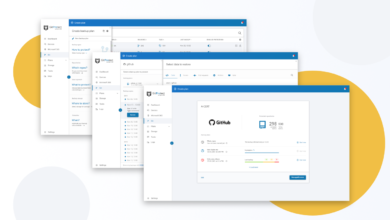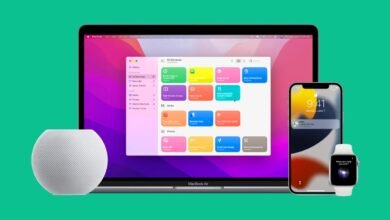10 Health Tech Trends to Watch in the Next Decade

One of the few industries that actively adopts new technologies is healthcare. Emerging technology can improve patient outcomes and boost healthcare practitioner capacities, from supportive and instructive apps to advanced therapeutic and diagnostic solutions.
Here are ten healthcare technology trends to keep an eye on in the next years.
1. iTech
One of the most promising AI trends in medicine is iTech. These services have the potential to provide extremely accurate diagnostic support while also relieving doctors of ordinary work. They can also aid in drug development and the discovery of effective therapeutic options.
The Zebra AI1 software is a very successful example of AI in medtech. It examines medical photos with advanced AI and provides a diagnosis to healthcare providers so that treatment can begin sooner. This technology is expected to cut down on the time it takes doctors to obtain a definitive diagnosis by at least 80%.
2. Virtual Health Assistance
According to a recent Accenture survey, 62 percent of individuals would be delighted to use virtual health advisory at home, and 57 percent would like to receive chronic disease monitoring via remote equipment.
This demonstrates that there are still plenty of prospects for companies to profit from customer interest in virtual health aid.
Several businesses have already had significant success, particularly in the aftermath of the Covid-19 outbreak. Using a combination of AI services and human healthcare specialists, many of these organizations specialize in delivering affordable, complete virtual care.
3. The blockchain technology
People are always concerned about data security, especially when dealing with sensitive information such as medical records. While surveys show that people trust brick-and-mortar doctors’ offices and hospitals to keep their data safe, confidence in tech-related medical care diminishes dramatically.
The answer to enhancing customer confidence in secure data management is blockchain technology. It provides new levels of security, trust, and control. Although blockchain isn’t currently widely used in healthcare, it’s a trend to keep an eye on in the future years.
4. Accessibility to the Internet of Things (IoT)
Hospitals continue to face tremendous workloads and resource constraints. In the healthcare industry, there will always be a demand for cutting-edge innovation and better efficiency, which is why more advanced IoT accessibility is another trend to keep an eye on.
The more IoT technology can be integrated into healthcare, the higher the overall quality of treatment for patients will be.
5. Medical apps for mobile devices
There’s an app for practically anything these days, including healthcare. Healthcare organizations must stay up as consumers continue to adopt a truly mobile mindset. The digital medicine revolution is gradually including mobile apps.
Rapid advancements in mobile app technology, patient awareness, and a steep rise in lifestyle disorders are the key growth drivers for mobile health (mHealth). All of these indicators lead to a future of expansion and innovation.
Natural Cycles, for example, has already achieved success, having raised more than $30 million in funding and recruited 500,000 women to their subscription business.
6. Robotics
Aside from AI, we may expect to see robots play a bigger role in the healthcare industry. Advances in robotics are paving the way for autonomous robots to assist medical workers with everything from mundane activities like collecting patient vitals to more complex jobs like performing complex procedures. In the medical field, there are numerous examples of robotics.
Medical companionship may possibly be the future of robotics. Companion bots have the potential to improve mental health and, in the future, to aid with physical health monitoring.
7. The use of telemedicine
Telemedicine is quickly gaining traction as the future of healthcare. Although the global pandemic has increased its use, telemedicine is now incredibly popular due to its convenience. From 2021 to 2030, the worldwide telehealth industry is expected to develop at a CAGR of almost 26%.
Telewellness is the natural next step after telehealth. Consumers will desire easy access to proactive health support from medical professionals. This might range from live-streamed exercise classes to ongoing disease prevention education and access to specialized medical practitioners for check-ins and health conversations.
8. Biohacking
Biohacking used to be a far-fetched sci-fi “fringe” concept, but it is gradually becoming a reality. Biohacking, in practice, refers to anything that “levels up” your body by enhancing wellness and vital processes.
Companies like Genopalate, which creates food regimens based on individual genetic information, and brands that sell specialized supplements are examples of common biohacking solutions. Stem cell therapy and implant devices are two more biohacking topics.
9. Virtual Reality (VR)
Virtual reality and augmented reality will probably certainly play a role in medical education in the future. Medical students, for example, have lately started utilizing the Osso VR platform to prepare for surgical procedures. A total of $27 million in Series B funding has already been raised for the surgical training platform. The VR suite has demonstrated to increase overall surgical performance by up to 300 %, so it’s simple to see how firms may use the technology in other areas of healthcare.
10. Artificial intelligence (AI) diagnostics
The rise of AI diagnostic tools is a final trend to keep an eye on. On the basis of medical scans such as MRIs and ultrasounds, companies are already training AI to recognize brain abnormalities, malignant growths, sight impairments, and more. By dealing with the administrative burden of arriving at a diagnosis, AI can also help to alleviate medical burnout.
The market for highly intelligent medical solutions is estimated to exceed $6 billion by 2030, and AI is likely to pervade all aspects of healthcare by 2025. These are all wonderful platforms for entrepreneurs to build on in the future.












4 Comments